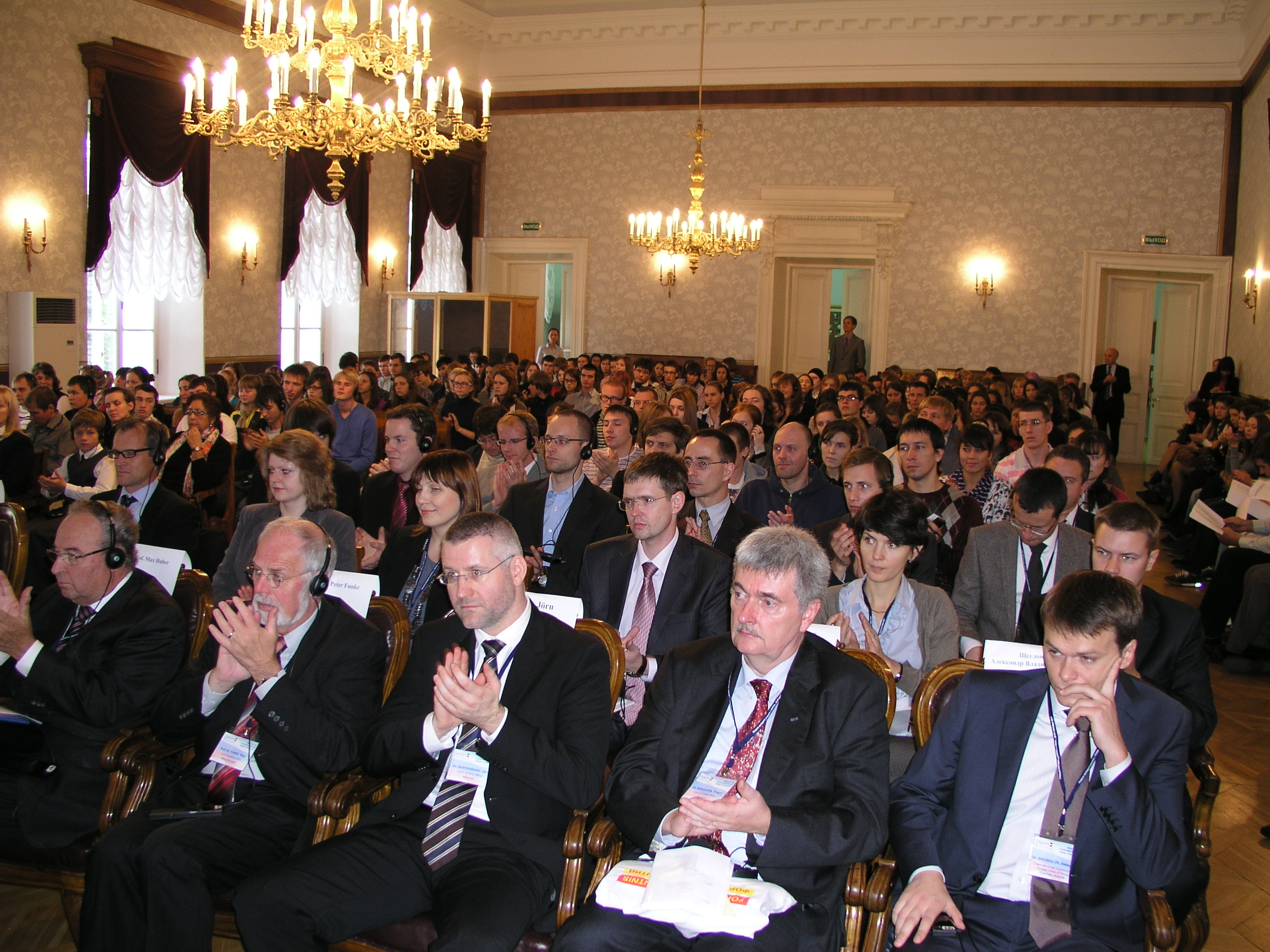First German-Russian Young Researcher Week in Kazan
As part of the German-Russian Year of Science, Education and Innovation 2011/12, the German Academic Exchange Service (DAAD) and the German Research Foundation (DFG) organised the first Young Researcher Week in Russia under the auspices of the German House for Research and Innovation (DWIH). Between 19 - 24 September 2011, a group of over 50 doctoral and postdoctoral researchers and professors from both countries came together at the Federal University of Kazan to discuss their research approaches on the topic of People and Energy.
The purpose of the week, which was organised jointly with the Russian Union of Young Scientists (ROSMU), was to encourage wider networking and stronger partnerships among early career researchers. It was an interdisciplinary and forward-looking theme for the conference, incorporating both a global perspective and key current issues in bilateral cooperation between Germany and Russia: energy management, efficiency technologies, energy storage, energy security, renewable energies, risk assessment, climate impacts and political, economic and social consequences.
The forum gave the young researchers the opportunity to report on their own work as well as listening to presentations by experienced researchers. The German representatives included ERC Advanced Grant recipients Christian Oliver Paschereit (Technical University of Berlin), Eckart Rühl (Free University of Berlin) and Helmut Weidner (WZB Berlin). Sabine Ludwigs (Stuttgart) and Frank Goldschmidtböing (Freiburg) also presented their work as part of DFG early career support programmes such as Emmy Noether groups and Research Training Groups. There were also presentations by the DFG, the Max Planck Society, the DAAD, the Alexander von Humboldt Foundation and the Free University of Berlin. The research community in Kazan was represented by contributions from Sergey Mikhailov (Technical University of Tupolev), Danis Nurgaliev and Ilgiz Garifullin (Federal University), and Nail Sakhibullin and Kev Salikhov (Zavoisky Institute). There were also panel discussions with prominent participants.

Formal opening of the week at the University of Kazan: Max Huber (DAAD), Peter Funke (DFG), Jörn Achterberg (DFG Moscow), Gregor Berghorn (DAAD Moscow), Aleksandr Shcheglov (ROSMU) (first row, L to R)
Over 300 students and researchers from universities and research institutions in Kazan took part in the formal opening of Young Researcher Week. The event began with plenary presentations by the Rector of the Federal University, Ilshat Gafurov, and the education minister of the Republic of Tatarstan, Albert Gilmudtinov. On the German side there were words of welcome from the Ambassador of the Federal Republic of Germany to the Russian Federation, Ulrich Brandenburg, and the vice-presidents of the DFG and DAAD, Peter Funke and Max Huber.
Speaking on behalf of the DFG, Peter Funke explained the two main aims of the event: "Firstly, the presentation of top-level research and the opportunity to network pick up on two key aspects of the Year of Science, and secondly, this event in Kazan promotes links with research centres in the different regions of Russia - because a lot of research carried out in Kazan is of great interest to German academics." The chair of the Russian Union of Young Scientists (ROSMU), Aleksandr Shcheglov, emphasised that the event was bringing together young researchers not only from different cities in Germany, but also from all parts of Russia. The speakers all expressed the hope that this first Young Researcher Week in Kazan would be repeated in years to come.
The German delegation took advantage of the week to speak to various university rectors and institute directors. Options for further bilateral cooperation were discussed with the President of the Tatarstan Academy of Sciences, Akhmet Mazgarov, and the director of the Kazan Research Centre of the Russian Academy of Sciences, Oleg Sinyashin. In a personal meeting with the German ambassador and the vice-presidents of the DFG and DAAD, President Rustam Minnikhanov indicated his strong interest in expanding academic relations between Tatarstan and Germany.
Kazan is known as Russia's third capital city and is one of the most important research locations in the Russian Federation. It is home to the country's third oldest university, where schools of mathematics, chemistry, biology, medicine and linguistics were established in the 19th century and acquired a worldwide reputation. Kazan is associated with names such as Nikolai Lobachevsky, Alexander Butlerov, Yevgeny Zavoisky and Jan Baudouin de Courtenay. Today there are over 100 universities and research institutes in Tatarstan, with 210 000 students. For a long time, the DFG has funded numerous projects in Tatarstan in the fields of chemistry, physics and mathematics, as well as geology and the social sciences, for example at the Arbuzov Institute of Organic and Physical Chemistry, the Zavoisky Physical-Technical Institute and the Federal University.